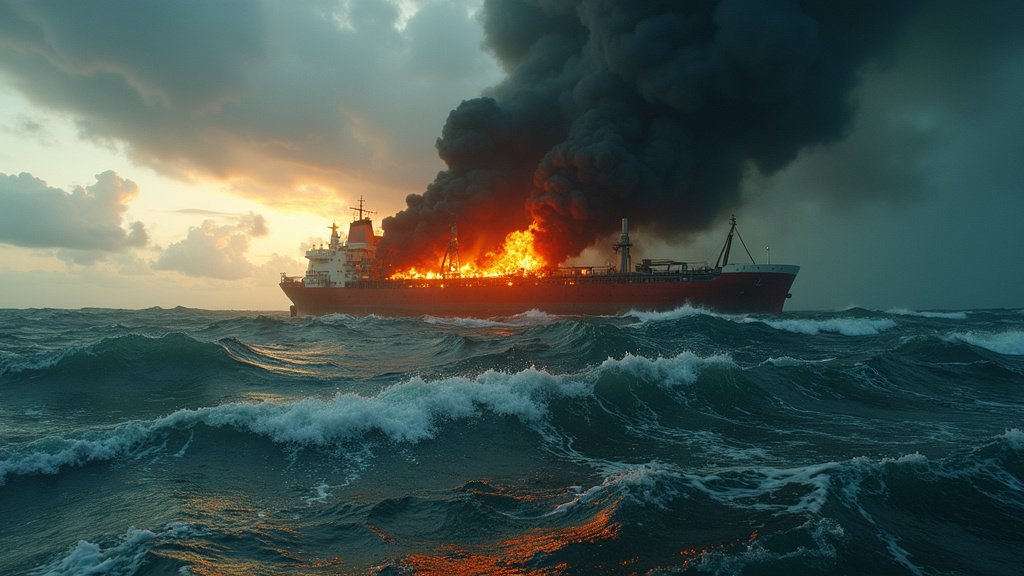Sri Lanka Orders Hefty Fine After Marine Disaster
Colombo, Sri Lanka – Sri Lanka’s highest court has delivered a landmark ruling, ordering a Singaporean shipping firm to pay a staggering US$1 billion in damages. The penalty stems from the catastrophic marine pollution caused by the sinking of a vessel off the coast of Colombo, marking what is now recognized as the island nation’s worst marine disaster. The Supreme Court’s decision mandates Express Feeders, the owners of the ill-fated MV X-Press Pearl, to remit the substantial sum within a year.
The Sinking of the MV X-Press Pearl
The MV X-Press Pearl met its demise off the coast of Colombo Port in June 2021. The vessel’s tragic fate was sealed after a fire erupted, leading to its eventual sinking. The ship was laden with a dangerous cargo, a significant factor in the scale of the subsequent environmental damage. The court’s ruling brings a measure of closure to a maritime disaster that has had lasting consequences on the local ecosystem and economy.
Dangerous Cargo and Environmental Impact
At the time of its sinking, the MV X-Press Pearl was carrying a substantial and dangerous cargo. The vessel held 81 containers of materials classified as “dangerous cargo,” including hazardous substances such as acids and lead ingots. The consequences of the ship’s demise were swift and devastating. Tons of microplastic granules, released from the ship during the sinking, inundated an 80-kilometre (50-mile) stretch of beach along Sri Lanka’s western coast. This massive influx of plastic pollution had a profound impact on the local environment.
Fallout and Long-Term Consequences
The immediate aftermath of the sinking witnessed widespread environmental damage. The extensive plastic pollution resulted in a prohibition on fishing activities along affected areas for several months. This fishing ban, which lasted for an extended period, disrupted the livelihoods of countless local fishermen and had a negative impact on the seafood industry. The long-term effects of the marine pollution are still under investigation, but the court’s decision signals a commitment to holding those responsible for the disaster accountable.
Legal Battle and Court’s Decision
The case against Express Feeders represents a significant legal victory for Sri Lanka, highlighting the country’s resolve in pursuing environmental justice. The Supreme Court’s directive for payment within a year underscores the urgency of rectifying the environmental damages caused by the shipping firm. The ruling serves as a strong message about the responsibilities of shipping companies when dealing with hazardous cargo.
Significance of the $1 Billion Fine
The US$1 billion fine imposed on Express Feeders is a substantial figure and indicates the severity of the environmental impact and the financial cost associated with the cleanup and remediation efforts. The funds are expected to be allocated towards environmental restoration, compensation for affected communities, and measures to prevent similar disasters from occurring in the future. This landmark ruling sets a precedent for future cases involving marine pollution and environmental damage, emphasizing the importance of stringent safety protocols and responsible environmental practices within the shipping industry.

